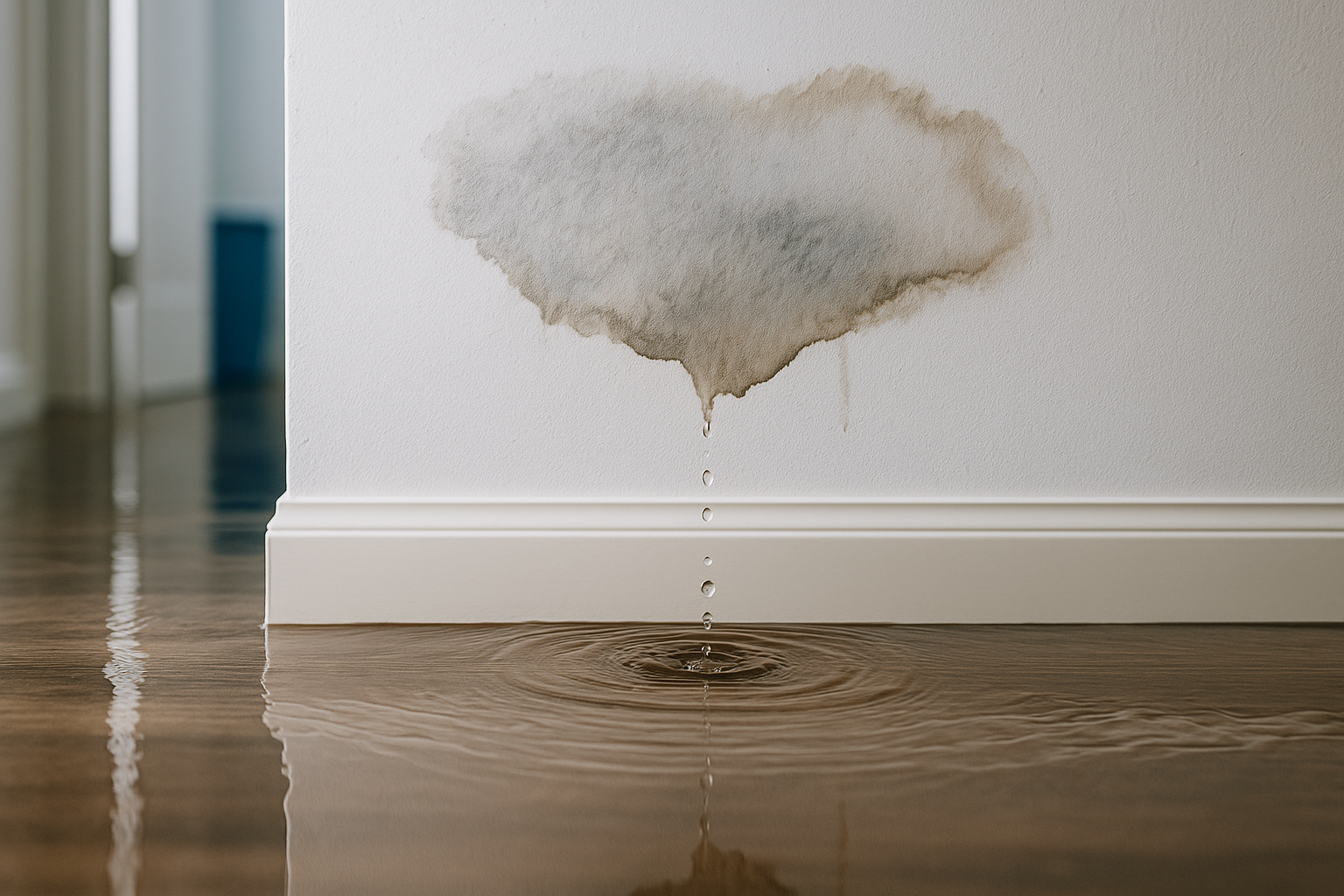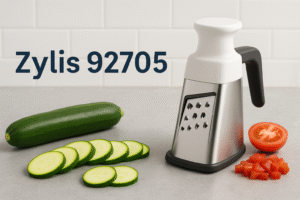Water damage ruins homes and businesses. It causes serious problems if you don’t act fast. A small leak under the sink can soak through floor and walls. A tiny crack in a pipe can burst and flood a room in minute. Most people do not see the sign until it too late.
The worst part is that water damage usually start small. You may miss a musty smell coming from the basement. But those little sign often mean something bigger is happening out of sight.
The good news is that many water issues are easy to catch early. You just need to know where to look. Regular check and simple maintenance can save you thousand of dollar. They also protect your home your belonging and your health.
This guide show you the most common cause of water damage. It explains what to look for and what step to take. It also give you real ways to prevent water damage before it spread.
What Causes Water Damage?
Water damage come from many source. Some are easy to spot like a burst pipe or a leaking roof. Other stay hidden behind wall or under floor. You may not notice the problem until the damage is already done.
Plumbing issues cause many water problem. So do roof leak faulty appliances and bad drainage. Heavy rain and flood also put your home at risk. Even small thing like clogged gutter or cracked foundation can lead to big trouble over time.
Some water damage happen fast. A pipe break. A storm hit. Water rushe in and causes instant damage. Other time water build up slowly. A dripping hose or a loose valve can leak for week before you see any sign.
Knowing the causes help you take action early. Fixing the problem fast is the key to preventing costly repair.
1. Leaking or Burst Pipes
Pipes often break due to pressure rust or freezing. Older home have more risk.
You may see stain on the ceiling. You may also notice a drop in water pressure. If your water bill jump for no reason check your pipes.
Prevention:
-
Wrap pipes in cold month
-
Replace old fitting and rusted pipes
-
Check all joint once a year
2. Appliance Leaks
Appliances break down over time. Old hoses crack. Loose fittings leak. These slow leaks cause big damage.
You may see water near the washer or fridge. You may also smell mildew in the laundry room or under the sink.
Prevention:
-
Check hoses every few months
-
Replace parts after five years
-
Follow the manual for service and care
3. Roof and Gutter Issues
A bad roof lets water in. Clogged gutters also cause overflow near your home’s foundation.
You may spot brown stains on your ceiling. You may hear dripping during rain. If gutters spill over, check for leaves or debris.
Prevention:
-
Check your roof two times a year
-
Clean out gutters before each rainy season
-
Add gutter guards to stop clogs
4. Foundation Cracks
Water often slips through foundation cracks. Poor yard drainage also sends water to your walls.
Watch for puddle near your home. Look for damp wall or musty smell in the basement.
Prevention:
-
Slope soil away from your foundation
-
Seal any cracks
-
Install a sump pump if needed
5. HVAC Leaks
Air systems pull moisture from the air. Bad drain lines or clogs let water pool inside.
You might notice wet spots on floors. You might also smell mold from the vents.
Prevention:
-
Clean the unit every season
-
Change filters often
-
Call a pro for regular service
6. Storm Flooding
Heavy rain and snowmelt cause water to enter from outside. Flooded streets also push water toward basements.
If your area gets frequent storms, be alert. Water may seep in through windows or cracks.
Prevention:
-
Add a battery backup to your sump pump
-
Raise items off the basement floor
-
Use sandbags near doors if needed
7. Sewer Backups
Clogs in your sewer line send dirty water back into your home. This creates a serious health risk.
You may smell something bad from the drains. You may also see slow draining or bubbling toilets.
Prevention:
-
Never flush wipes or hygiene products
-
Add a backwater valve
-
Get lines inspected once a year
8. Early Signs to Catch Fast
Early sign give you a chance to stop water damage before it spread. Most problems start small. They get worse fast if you don’t act.
Paint may bubble or crack. You might see stain on the ceiling or wall. Wallpaper can peel or look warped. Floors may feel soft or sag under your feet. You may also hear strange dripping sounds behind the wall.
A musty smell is another warning. That often means water is trapped somewhere it shouldn’t be. Mold grows fast in damp areas. If you smell mildew, take it seriously.
Your water bill may also tell you something’s wrong. A sudden jump in cost without extra use often points to a hidden leak.
These sign are easy to miss. But catching them early can save your wall floor and wallet. Always check these spot during regular home check.
What to Do If You See Water Damage
1. Shut Off the Water
Find the main valve and turn it off right away. If the leak comes from an appliance, turn off its valve.
2. Cut the Power
Shut off electricity near the water. Move furniture to a dry spot. If the water is dirty, leave the area.
3. Take Photos
Get clear photos of all damage. Show what happened and where. Send this to your insurance company.
4. Call a Pro
Reach out to a water damage company. Experts can inspect, clean, and stop further damage.
5. Start Drying Fast
Use fans and dehumidifiers. Mold starts in two days or less.
6. Disinfect the Area
Clean the area fully. Kill bacteria. Stop mold before it spreads.
7. Repair the Damage
Replace wet drywall or flooring. Fix the root cause. Make sure no moisture is trapped inside.
Stay Ahead of Water Problem
Most damage starts small. Most of it is easy to stop.
Smart habits include:
-
Checking pipes and fittings every year
-
Cleaning out gutters each season
-
Testing sump pumps often
-
Installing water sensors and shut-off valves
-
Keeping an emergency repair list
Water damage costs thousands. It also causes stress. Take action early. Watch for signs. Call help fast when needed.
FAQ
What are the most common sign of water damage?
Look for stain on walls or ceilings. Check for peeling paint soft floor and musty smell. A high water bill may also signal a hidden leak.
How fast does water damage spread?
Water spreads within minutes. Mold starts to grow in 24 to 72 hour. Act fast to reduce the damage.
Is water damage always visible?
No. Some damage hide behind wall under floor or in ceiling. Use your nose and watch for change in your home look or smell.
Can I fix water damage myself?
Small leaks are easy to fix. Large issues need a pro. Call a certified water damage expert for flood mold or sewer backup.
Does insurance cover water damage
It depends. Most policies cover sudden damage, like burst pipes. Slow leaks or poor maintenance often aren’t covered. Ask your provider for detail.
What should I do first when I find water damage
Shut off the water. Turn off electricity in that area. Take photos. Then call a water damage company right away.
How can I prevent water damage?
Inspect pipes roof and gutter often. Check appliance. Install water sensor and shut off valve. Fix problem early to avoid big cost.
Conclusion
Water damage start small but creates big problem. A slow drip under a sink can soak floor and wall. A clogged gutter can flood your basement. A faulty hose on a washing machine can ruin your laundry room overnight.
Most people miss the early signs. They notice the damage only when it spreads. At that point, repairs cost more. Mold may already be growing. Floors may need to be replaced. Walls may need to be torn out.You can avoid all of that. Watch for stain soft spot odd smell or high water bill. These are warning sign. Act as soon as you see them.
Check your pipes and appliance. Clean out gutter. Inspect the roof and foundation. Install water sensors if you can. These small steps prevent major damage later.
If you find water damage, don’t wait. Shut off the source. Cut power in the area. Take photos. Stay prepared. Take care of small leak before they become big disaster. Water damage is common but you do not have to let it take control.




